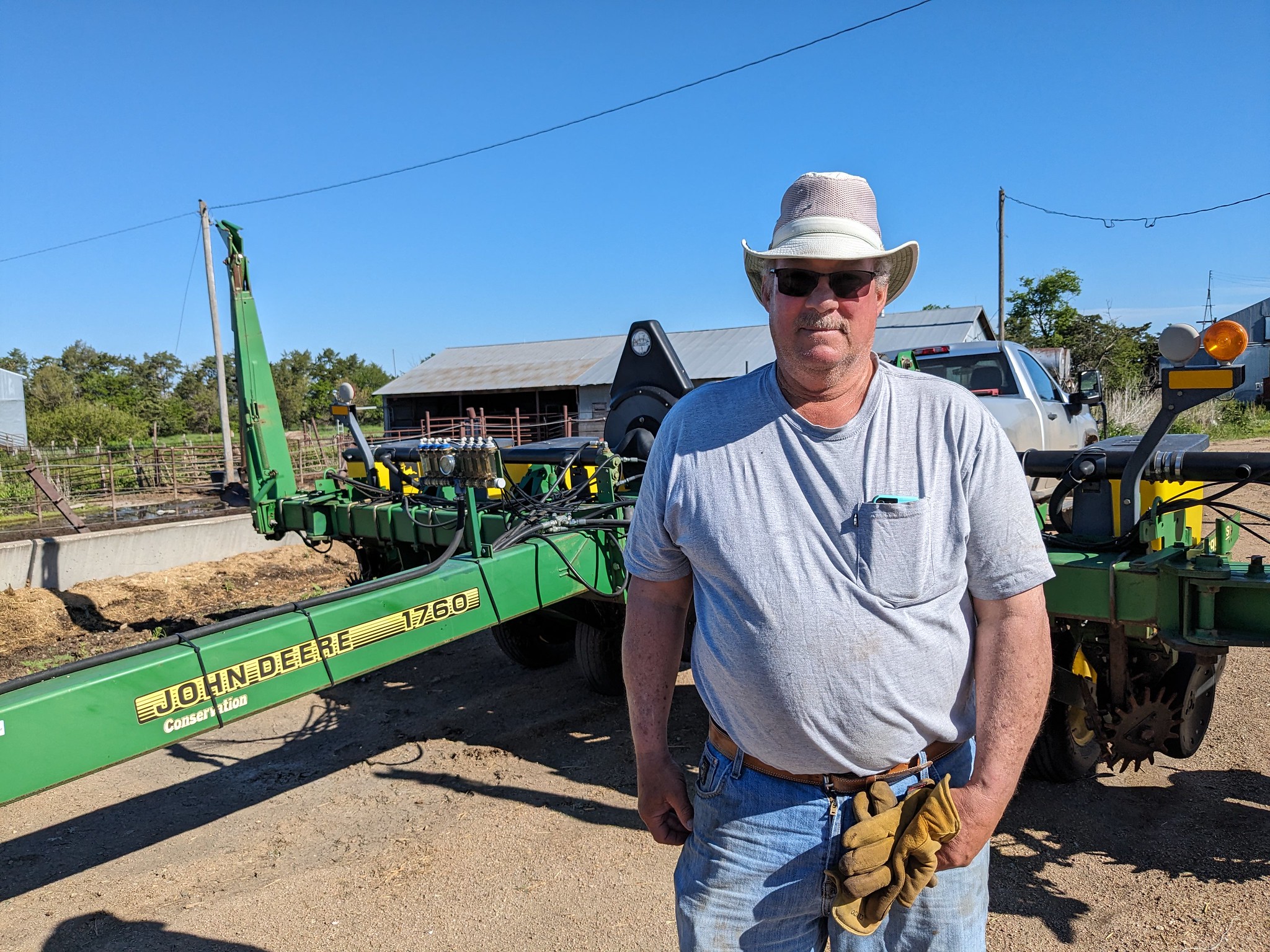K-State expert touts importance of rollover protection equipment
In an instant, Fred Levendofsky knows his life could have been changed forever.
Thirty years ago, the Belleville man was a young farmer and father with two small children. On one particular day, he was shredding weeds with a tractor and mower around a lagoon in a cattle lot near his parents’ home.
“I thought everything was okay,” he remembers. “The tractor seemed stable. I was mowing in low gear, just creeping along.”
Then the rear wheel of the tractor fell through an eroded spot on the dam. The tractor overturned.
“The next thing I knew, I was on my head on the top of the cab,” he said.
Luckily on that day, Levendofsky said he chose to use a tractor with a cab.
“That saved my life,” he said. A window broke out of the cab when it overturned, which gave Levendofsky an escape route.
Today he looks back with gratitude that he saw his children grow up and graduate from college, and had an opportunity to meet his grandchildren and share in their activities. He and his wife, Connie, continue to live and farm north of Belleville.
“I was lucky,” he said. “My life could have changed in a millisecond.”
Newer model tractors are equipped with cabs and Rollover Protection Structures, known as ROPS. That’s not the case for many older model tractors still in use on farms today, according to Tawnie Larson, a project consultant in the Carl and Melinda Helwig Department of Biological and Agricultural Engineering at Kansas State University. Larson provides leadership in a program to raise awareness of tractor accidents and promote a rebate program for ROPS.
Larson said most tractors built after the mid-1970s were equipped with ROPS, but it wasn’t until 1985 that ROPS became standard equipment on new tractors.
“Many farmers still use older tractors without roll bars,” she says.
ROPS are roll bars or roll cages for tractors without cabs. ROPS create a protective zone around the operator when a rollover occurs. When used with a seat belt, the ROPS will prevent the operator from being thrown and crushed from an overturning tractor or from equipment mounted or hooked to the tractor, according to the National Ag Safety Database.
According to national statistics, 96 people a year are killed in tractor rollovers, the most frequent cause of farm fatalities. Eighty percent of the people killed or injured are experienced heavy equipment operators.
According to Larson, ROPS have been proven to be 99% effective in preventing death or injury when used with a seat belt. Yet, she adds, only about half of tractors still in use in the U.S. are equipped with ROPS.
Beginning in 1986, American tractor manufacturers began voluntarily adding ROPS on all farm tractors over 20 horsepower sold in the United States. In addition, the National ROPS Rebate Program (NRRP) is a voluntary program that provides rebates for approximately 70% of the cost of purchasing and installing a ROPS kit.
Larson said K-State Research and Extension — through the Carl and Melinda Helwig Department of Biological and Agricultural Engineering — has been collaborating with the NRRP to research and gain support through public and private funding and partnerships to provide Kansas farmers with the rebate program to retrofit an older tractor.
Larson said the average cost of a ROPS is $1,200, but the estimated cost of a fatal overturn to a family and farm is more than $750,000. She notes that in the past eight years, 10 Kansas farmers have died, and another six have sustained a serious injury due to tractor rollover accidents.
“Approximately 30,000 Kansas farms are operating without ROPS on at least one tractor,” she said.
For more information about applying for the rebate program when available in Kansas, call 877-767-7748 or go to ropsr4u.org to be added to a waitlist.
Individuals may also contact Larson at [email protected] or 785-532-2976; or Ed Brokesh at [email protected], 785-532-2907.
PHOTO: Belleville, Kansas farmer Fred Levendofsky narrowly escaped disaster when his tractor overturned while mowing 30 years ago. (K-State Research and Extension news service)




